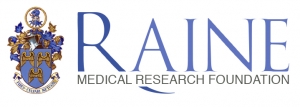Dr Rachel Foong
Examining environmental risk factors for asthma in Western Australia
Dr Rachel Foong from the School of Physiotherapy and Exercise Science, Curtin University, was awarded a 2018 Raine Priming Grant.
Dr Rachel Foong is a Research Fellow at the Telethon Kids Institute and holds an adjunct position at Curtin University. She received a Raine Priming Grant in 2018 for her project that seeks to identify environmental factors that increase asthma risk in Western Australia, in efforts to improve lung health and environmental management plans.
Asthma affects over two million Australians and is the most common chronic lung disease of childhood. In Western Australia, the prevalence of asthma in children is currently 8.7%, being the most common reason for hospitalisation in children aged 1-14 years, impacting on school attendance and quality of life of affected children. The causes of asthma, however, remain unknown. Previous studies have indicated that early life environmental exposures may increase asthma risk. This project examines the impact of multiple early-life environmental exposures in birth cohort studies in Perth and Europe to identify risk factors that may contribute to asthma.
Dr Foong’s findings demonstrated that parental asthma and maternal smoking contributed to low lung function and asthma development in children in WA. When examining the role of environmental risk factors, such as air pollution, early-life day-care attendance, pet exposure and the presence of plastic metabolites including bisphenol A and phthalates during pregnancy, it was observed that day-care attendance in the first three years of life contributes to wheeze in children, but there were no long-term risks for asthma, allergies, or low lung function throughout childhood and into adolescence. Plastic exposure in pregnancy was, however, associated with lower lung function in children and teenagers, but was not associated with asthma.
Air pollution levels are low in WA compared to international standards and no association was observed with asthma and allergies. Cat or dog ownership also did not appear to increase the odds of asthma, or reduce lung function in childhood. The rates of asthma in children and their parents was found to be higher in Perth compared to the European cohorts studied. In addition, the use of asthma management plans was found to be low, with less than half of asthmatics using them. Such findings have highlighted the importance of identifying factors that contribute to asthma development as well as promoting written action plans to support management of asthma for families.
This Raine Priming Grant has led to two joint publications with European collaborators, several manuscripts in preparation, and Dr Foong is now co-supervising a PhD student on a project aiming to predict asthma using machine learning. Dr Foong is part of the recently launched Wal-yan Respiratory Research Centre, which is a partnership between Telethon Kids Institute, Perth Children’s Hospital Foundation and Perth Children’s Hospital. Since being awarded a Raine Priming Grant in 2018, Dr Foong has been successful in receiving a NHMRC Early Career Fellowship to continue her important work into the contributors to asthma development in childhood. Indeed Dr Foong’s future research will seek to use new methodology, including machine learning, to develop a predictive tool for asthma. She is also aiming to engage with the Asthma Foundation of WA to identify means to improve on the use of asthma management plans in families living in Perth.
“The Raine Priming Grant has allowed me to build collaborations with international researchers and gain skills in longitudinal data analyses.”

